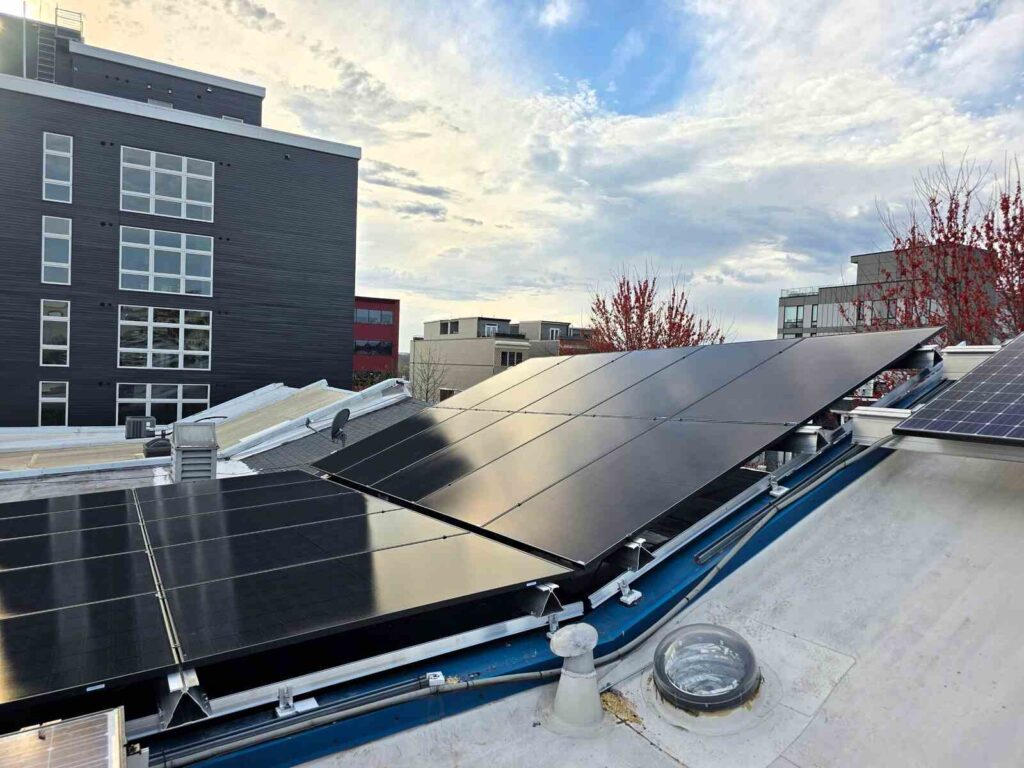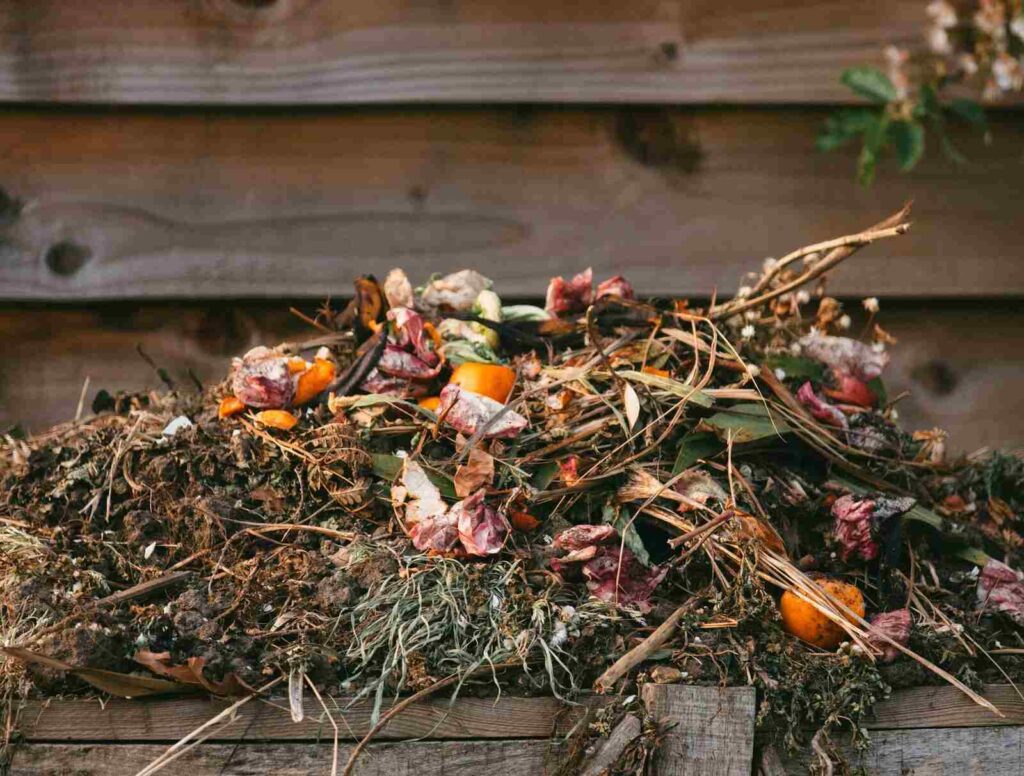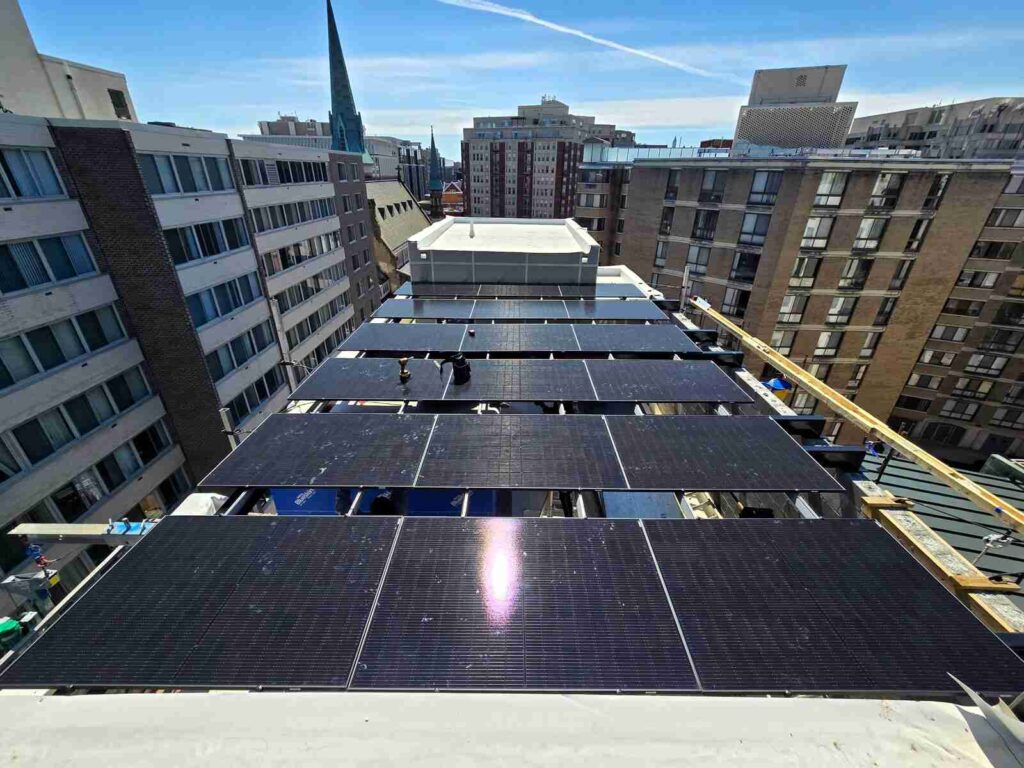
It’s one of our favorite days of the year — Earth Day! Our planet faces unprecedented challenges, but at Uprise, we’re not going to sit by and do nothing, and if you’re reading this blog, we bet you’re not going to either. In honor of our shared home, we’re highlighting five ways you can fight climate change.

1. Go Solar
Okay, you probably expected a solar company would suggest you go solar! But clean energy has enormous potential to benefit our planet — and even saves people money. According to the United Nations, over 80% of our global energy production still comes from fossil fuels — the largest contributor to climate change — but renewable energy is gaining ground. Your roof can be part of efforts to switch from fossil fuels to clean power. Besides fighting climate change, solar power also creates jobs and reduces air pollution.
Want to learn more about tackling climate change with your rooftop? Reach out to Uprise for a no-obligation quote to get started.

2. Eat More Plants
In the book “Drawdown: The Most Comprehensive Plan Ever Proposed to Reverse Global Warming,” edited by Paul Hawken, a plant-rich diet is the fourth most impactful climate solution, after refrigerant management, wind turbines, and reduced food waste (more on that in a minute!). Drawdown references Buddhist monk Thich Nhat Hanh in saying “making the transition to a plant-based diet may well be the most effective way an individual can stop climate change.”
And the data backs Nhat Hanh up. People who consume plant-based diets “account for 75 percent less in greenhouse gas emissions” than people who eat over 3.5 ounces of meat per day, according to The New York Times, citing University of Oxford research.
But if you can’t switch to a plant-based diet, even eating less meat will make a difference. Drawdown says, “If 50 percent of the world’s population restricts their diet to a healthy 2,500 calories per day and reduces meat consumption overall, we estimate at least 26.7 gigatons of emissions could be avoided from dietary change alone.”

Unsure where to start? Uprise’s marketing associate Lacy Cooke went vegetarian five years ago this fall and hasn’t looked back. Here are some of her favorite quick and easy weeknight vegetarian meals she returns to over and over:
- Blackened Tofu Steaks
- Farro with Chili Roasted Broccoli and Hummus
- Black Bean Tacos
- Impossible Italian Meatballs
If you have more time to spend cooking and want to experiment, she recommends Halal Street Cart Chickpeas with Turmeric Rice, Tahini Yogurt Sauce, and Harissa Oil or Vegan Crunchwrap Supreme (which also includes her go-to recipe for cashew queso).
(Frankly, don’t get Lacy started on vegetarian cooking; it took a lot of willpower for her to trim her list of favorite recipes down to these six!)
You can also check out the BBC’s interactive food calculator to explore your food’s carbon footprint and learn about substitutes.

3. Cut Down On Food Waste
We waste around one third of our food, according to Drawdown, contributing 4.4 gigatons of carbon dioxide equivalent yearly. This means if food waste was a country, it would be the third-largest greenhouse gas emitter, after the United States and China. Most of us are guilty of food waste — just think about those leftovers from your favorite restaurant you totally intended to eat and then forgot about. So what can we do to limit the food we waste?
It can be as simple as planning ahead and checking your pantry shelves before you go grocery shopping. If you make a meal plan and a shopping list based on your plan, you can see what you already have before you hit up Trader Joe’s, or even design meals around ingredients already in your home.
Composting makes a difference too. In DC, you can compost for free by bringing your food scraps to farmer’s markets around the city; check out the DC government’s list of food waste drop-off sites to find one in your ward. You can also sign up for a composting collection service through DMV companies like Compost Crew or Veteran Compost.
There are plenty of creative ways to cook with food scraps too — here are 15 ideas from the Zero-Waste Chef and 30 ideas from The Spruce Eats to get you started.

4. Reduce Your Energy Consumption And Electrify
This suggestion is two in one: home electrification and conserving energy go hand in hand. To start, you can make small changes like turning your thermostat up a few degrees in the summer and down in the winter, washing your clothes in cold water, and turning off lights and appliances when you’re not using them.
The Department of Energy & Environment offers a guide for a DIY home energy audit, and the DC Sustainable Energy Utility offers a list of money saving tips for both the spring/summer and year round to help you lower your electricity use (and therefore, your electricity bill!).
But you can also go a step further and decarbonize your home. Swap out emissions-producing appliances for climate-friendly ones like heat pumps or induction stoves. You can learn more by reading through Rewiring America’s Electrify Everything in Your Home guide.

5. Rethink How You Get Around
We’re lucky to live in an area with multiple public transportation options, from the Metro to local bus systems to city bike shares. When you’re headed out, consider if you can opt for public transit or walking instead of driving. If you are driving, does it make sense to carpool?
If you’re in the market for a new vehicle, consider an electric car. According to the United Nations, switching to an EV can lower your carbon footprint by as much as two tons of carbon dioxide equivalent every single year.

There are so many ways to fight climate change that we haven’t even mentioned here! We didn’t talk about recycling, or buying items secondhand, or volunteering to pick up trash. Climate change is daunting, but we’re not powerless in this fight. Join us and celebrate Earth Day every day by reimagining the way you live to be kinder to our environment.
